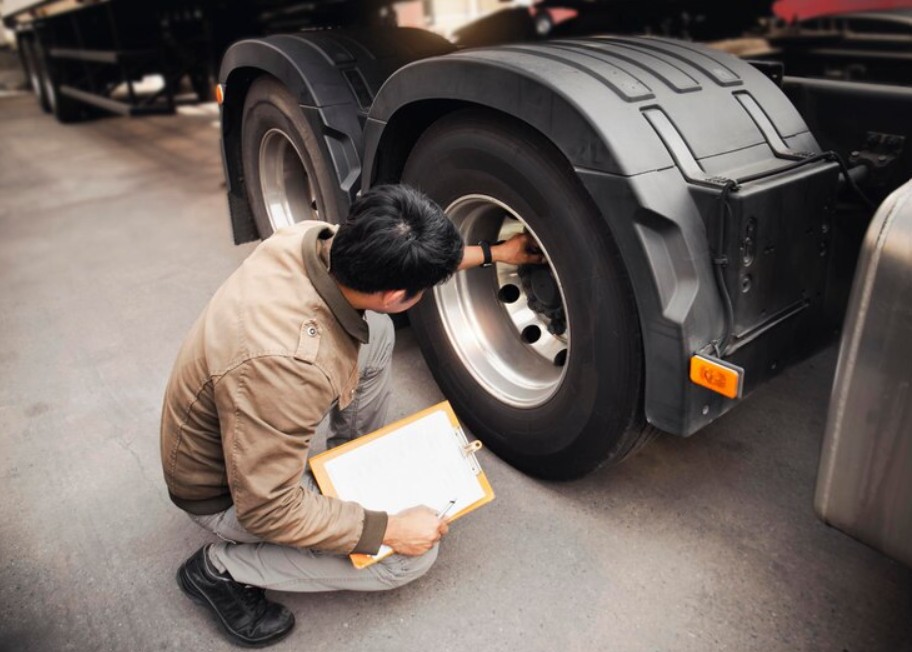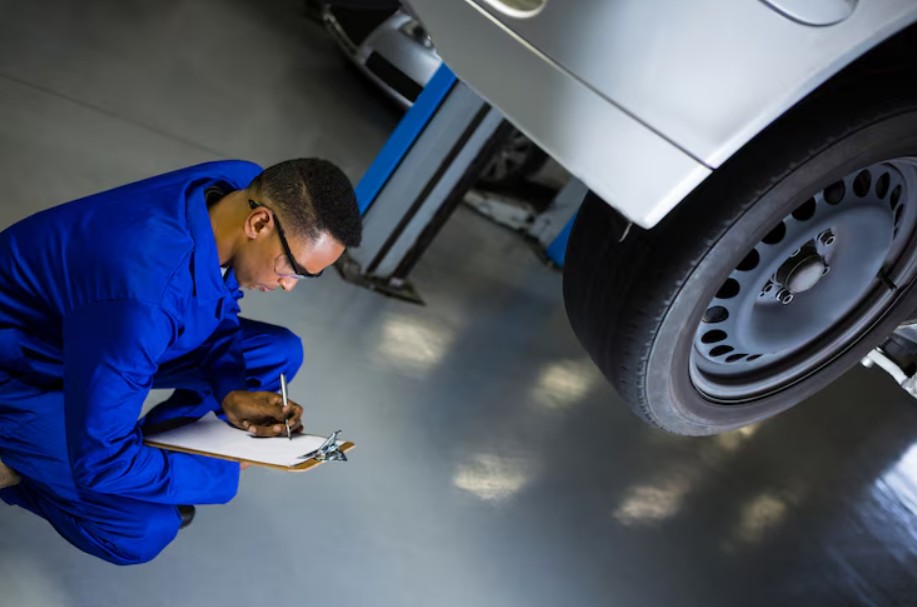Overheating truck? Here’s what’s going wrong and how to fix it
We have all been there. You are cruising down the highway, hauling a full load, when suddenly—bam! The temperature gauge surges rapidly. The last thing you want is for your truck to start acting up in the middle of nowhere. But don’t worry; you are not alone in this. Truck overheating is a common headache, and we’re here to break down why it happens and what you can do to fix it. At Eastline Road Repair, we know how frustrating and costly an overheating truck can be. Whether you’re dealing with a minor issue or a major breakdown, our team is here to keep you on the road. From diagnosing coolant problems to fixing faulty thermostats, we’ve got the experience and expertise to get your truck running cool again. And while you’re here, don’t forget about your trailer brake service in Willards—because keeping your truck cool is just as important as making sure your brakes are in top shape for a safe haul.

Common Causes of Truck Overheating
Low Coolant Levels
Your truck isn’t overheating just to mess with your schedule. There’s always a reason. One of the most common culprits is low coolant levels. Coolant is like your truck’s hydration system. It absorbs heat from the engine and releases it through the radiator. If your coolant is running low, your truck won’t be able to cool down efficiently, and things will get hot under the hood really quick. You might notice your temperature gauge creeping into the danger zone, catch a whiff of a sweet antifreeze smell, or spot a puddle of coolant under your truck. If that’s happening, you might have a leak somewhere in the radiator, hoses, or water pump. And if you’re constantly adding coolant, that leak is only going to get worse.
A coolant leak might seem like a small issue, but ignoring it can be a costly mistake. A slow leak can lead to a bigger problem, such as a blown head gasket, which is no joke. The moment you suspect a leak, grab a flashlight, pop the hood, and inspect your hoses and radiator. A simple hose replacement could save you thousands in future repairs.
Faulty Thermostat
Another troublemaker is a faulty thermostat. This little guy acts like a traffic controller for your cooling system, letting coolant flow when needed. If it gets stuck closed, your engine won’t get the cooling it needs, and in no time, you’ll be dealing with an overheating nightmare. You’ll know it’s unsafe if your engine overheats right after starting, your heater suddenly stops working, or coolant refuses to flow into the radiator. Fortunately, there is good news! A bad thermostat is one of the cheapest and easiest fixes.
Many truckers assume a faulty thermostat is a minor inconvenience, but it can quickly lead to major issues. If the thermostat stays closed, it traps all the heat inside the engine, which can lead to warped cylinder heads and a severely damaged engine block. A quick thermostat replacement is far better than an expensive engine rebuild.
Water Pump Failure
Your water pump is another key player in keeping your truck cool. It’s responsible for pushing coolant through the engine, and if it fails, you’re in for trouble. Your water pump may be nearing its end if it emits a high-pitched whining noise, exhibits coolant leaks near the front of the engine, or overheats even when coolant levels are fine. Replacing it before it fails completely will save you from a breakdown.
A failing water pump doesn’t always make itself obvious. Occasionally, the bearing inside the pump wears out, causing intermittent failures. One day your truck runs fine, and the next, you’re stranded with an overheated engine. If you suspect your water pump is going bad, don’t wait. A proactive replacement could save you a whole lot of stress.
Clogged Radiator
Sometimes, your radiator itself is the problem. Over time, dirt, rust, and debris build up, clogging the system and preventing coolant from doing its job. If your engine keeps overheating even though you’ve got plenty of coolant, your heater isn’t working properly, or you notice that the coolant looks dirty or sludgy, it’s probably time for a radiator flush. Regular maintenance will keep it in good shape, but if it’s too clogged, you might need a replacement.
Another common radiator issue is external blockage. Bugs, dirt, and road debris can clog the radiator fins, restricting airflow. If your truck overheats more in stop-and-go traffic than on the highway, grab a hose and give the radiator a good spray-down. It might be all you need to fix the problem.
Malfunctioning Cooling Fans
Cooling fans play a huge role, too, especially when you’re idling or driving in stop-and-go traffic. If your truck overheats when you’re stopped but cools down when you’re moving, chances are your cooling fans aren’t working. Maybe the fan motor is dead, maybe there’s an electrical issue, or maybe a bad relay is keeping them from turning on. Either way, if your fans aren’t running, your truck is going to overheat quickly.
Some trucks have belt-driven fans, while others use electric ones. If you have an electric fan, check the fuses and wiring before assuming the motor is bad. And if your truck has a belt-driven fan with a clutch, try spinning it by hand when the engine is off. If it spins freely, the clutch might be shot, meaning your fan isn’t pulling enough air through the radiator.
Heavy Loads and Extreme Conditions
Sometimes, it’s not a mechanical failure at all. If you’re hauling heavy loads, climbing steep hills, or driving in extreme heat, your engine is working overtime. More work means more heat, and if your cooling system isn’t up to the task, things will get out of control fast. Lightening your load when possible, using lower gears on hills, and taking breaks during long hauls can all help keep your engine from overworking itself.

How to Fix an Overheating Truck
When your truck starts overheating, don’t panic. Pull over safely, turn off the engine, and let it cool down. Never open the radiator cap while it’s hot—you’ll be asking for a face full of scalding coolant. Once it’s cool, check the coolant level, look for leaks, and inspect the radiator and hoses. If you’re unsure what’s wrong, calling a professional is always a good idea.
At Eastline Road Repair, we specialize in keeping your truck on the road. Whether you require a basic trailer brake service in Willards or a comprehensive trailer transmission service, we are here to assist you. Our expert mechanics can quickly diagnose and fix overheating issues, allowing you to resume your work without any delays.
Preventing Overheating Issues
Prevention is always better than repair. Regular maintenance is key to keeping your truck running cool. Check your coolant levels often, inspect for leaks, and flush your radiator as needed. Using the right type of coolant is also crucial—not all coolants are the same, and using the wrong one can cause buildup and corrosion. Pay attention to your temperature gauge; if it starts creeping up, don’t ignore it. The sooner you catch an overheating issue, the easier it will be to fix.
Another thing to watch out for is your trailer’s braking system. If your brakes are overheating, that can put extra strain on your truck’s engine. At Eastline Road Repair, we provide trailer brake service in Willards to keep your braking system working smoothly, preventing any unnecessary stress on your truck. Overheated brakes can make your truck work harder than it should, pushing the engine temperature higher. If you feel like your truck is struggling when stopping, it might be time to get those brakes checked.
And let’s not forget about your transmission system. A failing transmission can cause your truck to overheat, especially when shifting gears or pulling heavy loads. If you’ve noticed slipping gears, delayed shifting, or strange noises when accelerating, it might be time for a trailer transmission service in Willards. A properly working transmission keeps your engine running efficiently and prevents unnecessary heat buildup under the hood.
Conclusion
Don’t wait until your truck leaves you stranded. If you are dealing with overheating issues, contact us today, and let’s get your truck running cool again! Our team is ready to diagnose, repair, and prevent future overheating issues so you can get back to what you do best—hauling loads and hitting the road without a worry in sight.
